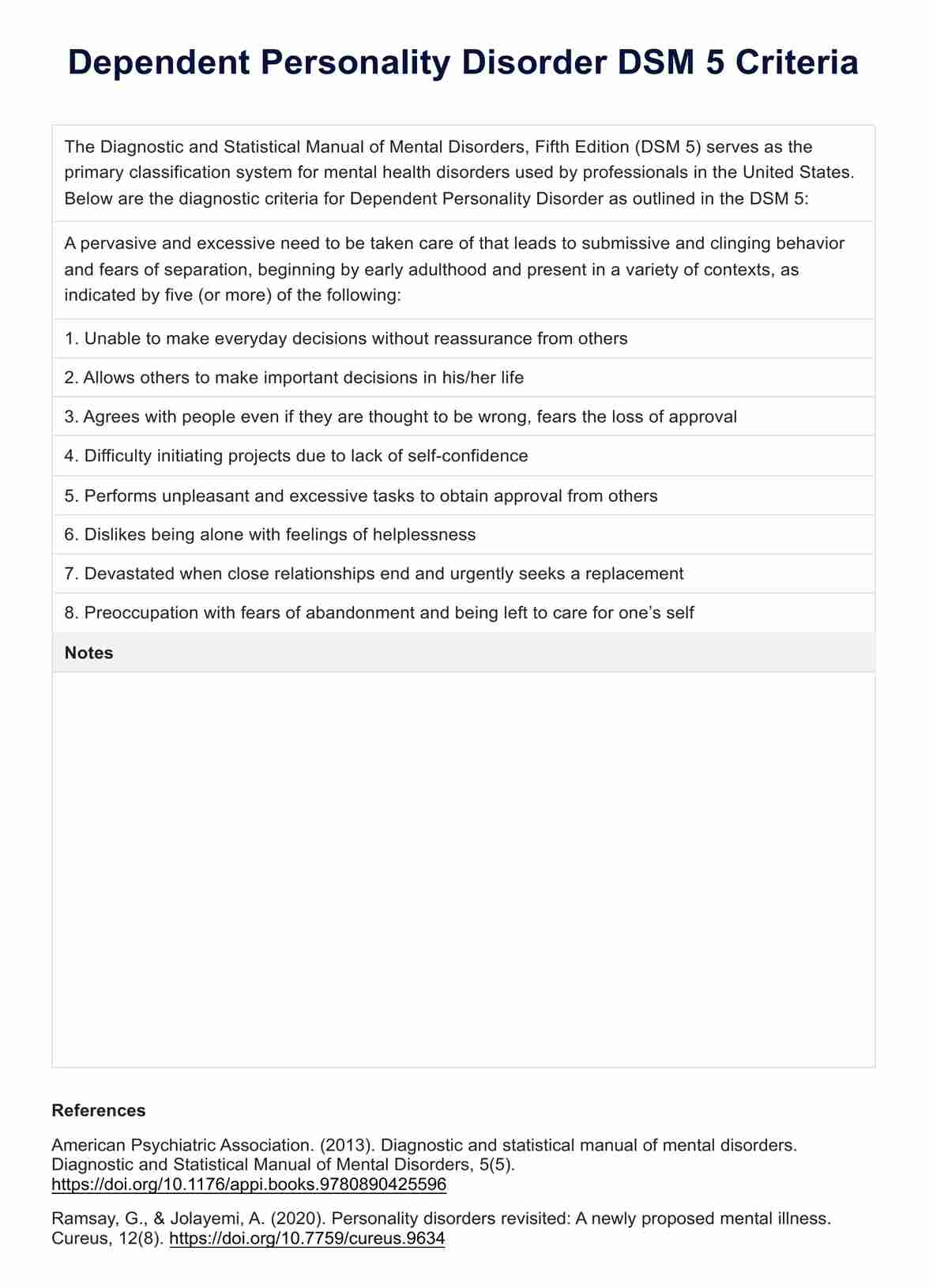Individuals with DPD often display clingy behavior, reluctance to make decisions without reassurance, and an excessive need to be cared for by others.

Dependent Personality Disorder DSM 5 Criteria
Learn about Dependent Personality Disorder DSM 5 Criteria, understand symptoms and treatment to form healthy relationships. Download the free PDF now.
Use Template
Dependent Personality Disorder DSM 5 Criteria Template
Commonly asked questions
DPD can hinder one's capacity to take initiative and responsibility for one's actions or decisions due to pervasive psychological dependence on others for guidance and support.
Yes, therapy facilitated by mental health professionals can be highly beneficial in addressing the underlying fears and insecurities driving dependency, empowering individuals to take more responsibility for their own lives and decisions gradually.
EHR and practice management software
Get started for free
*No credit card required
Free
$0/usd
Unlimited clients
Telehealth
1GB of storage
Client portal text
Automated billing and online payments











